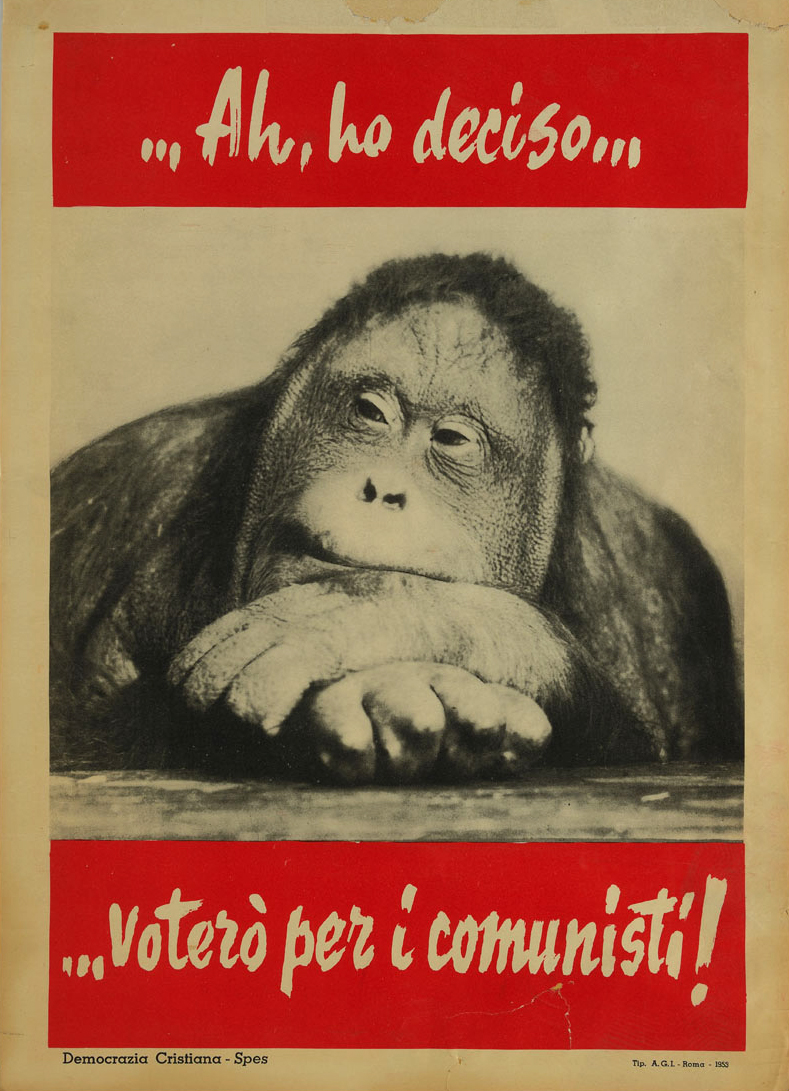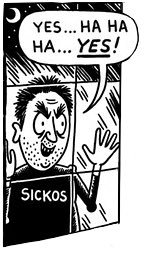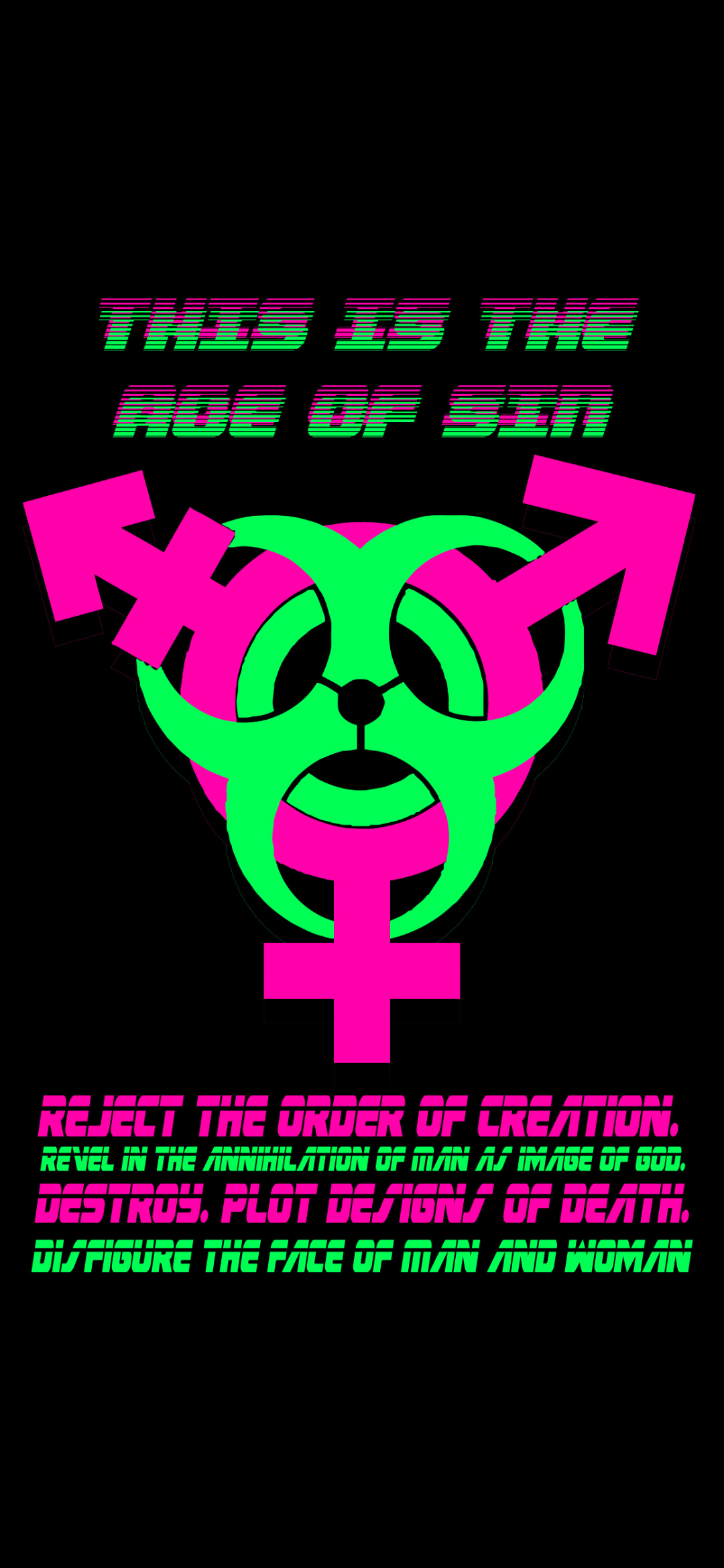Also, I don't just mean they are reactionary in certain area or in their personal life (Like Aristotle was important for biology despite being an apologies for slavery)?
I mean worth looking into their thinking precisely in areas where they're reactionary.
Possible suggestions (not saying they're justified) that I expect people would put forward include:
- Carl Scmitt
- Heidegger
I second Clausewitz, Liddell Hart is interesting too for military history.
Damn straight. All excellent. Never checked out Limonov so thanks for that.
Von Clausewitz is a big one. Lenin was reading that shit lmao.
Apparently one of the most important recent war theorists is Martin Van Creveld. I was planning to read his stuff. Turns out his (ofc unsurprisingly) a massive reactionary and wrote an anti-feminist screed about how 'women have actually always had it better than men'. Like he basically seems to be a fash but apparently his ideas on modern and postmodern warfare are genuinely interesting.
Was actually interested in suggesting the Van Creveld as a reading group thing, might also be relevant to understanding what's going on in Ukraine military-wise.
Never checked out Limonov so thanks for that.
Limonov is like Mishima for scumbags. His book ''it's me Eddie'' explains a lot the delusion of Diaspora population in America and also explains how the dissidents ecosystem worked. It also explains how the National Bolsheviks Party (which is just a performance art than an ideology IMO) was created
Nietzsche. He's a reactionary but he diagnoses some of the problems of modernity correctly. He articulates the appeal of the heroic or mythic and the dearth of that in bourgeois society. The Ubermensch (not necessarily the Nazi ideal) is a reactionary response to the crisis of the death of God that needs to be overcome (ironically, I can't think of a better term off the top of my head than 'overcome', so even in my critique I'm still operating within Nietzschean terms).
And the Paul Schrader movie about his life is my favourite film. Beautifully shot dissection of the pathologies that made him a fascist.
I read Patriotism a while ago and I will admit, it was a very interesting read
I enjoyed Mishima Yukio when I was younger, almost as a morbid fascination/character study. As a non-western nationalist, he wasn't happy with American hegemony/occupation, including the use of Japan as a staging ground for the Korean War ("It was supposed to be our turn to bomb Korea"). Unlike the American conservatives I was used to, he had an actual culture to write about, so he could write florid prose about some aspect of Japanese culture and talk about how it's being destroyed by neoliberalism and it's a little bit more reasonable than the things the American right whines about (though it's important to remember that his cause was abhorrent and fascist).
A lot of his writing subverted my expectations of what the right could look like - though I encountered him before the Alt-Right was a thing. In some ways, I feel like he prepared me for the Alt-right. He was all about the Chad meme and bodybuilding and strong muscular men, he was (most likely) gay, and in one of his novels the protagonist cucks the imperial prince (despite Mishima's affection for imperial rule). A lot of the Milo Yiannopoulos-type bits and subversiveness and attempts at third-positionism were kinda like :seen-this-one:
Mishima's a really fantastic example because, as you say, he's got an actually very developed, sophisticated cultural background that he's working out of (despite people on here often getting on the Japan-hate bandwagon, which is politically correct but often culturally ignorant and quite chauvinistic), and he's a genuinely fantastic writer. He's also so weird as a fascist in terms of his contradictory personal life, beliefs and aesthetic tastes that I agree that it's difficult for me not to be morbidly fascinated in him at a minimum. Unlike the alt-right edgelords and cultureless USAmerican conservatives however, Mishima has actual culture and actually explores his disturbing topics in ways that are philosophically interesting.
The sad thing is that apparently his writing's poetic nature is so tied to Japanese that it's extremely difficult to convey what it's like to read him in the original.
I reconvinced myself of this by reading another book by him a few months, ago. I can't recall the title in English but the Italian one is 'Il sapore della gloria' (The Taste of Glory'; CW for extreme animal cruelty).
Like you note, a great example of fascist reaction against neoliberal capitalism under a military dictatorship.
Also: I wouldn't say that USAmericans have no culture, although alot of yank comrades like to get masochistic about it and claim so. It's just that most of the great US culture is not white (music first comes to mind, like Blues, Gospel, Jazz, Soul, Funk, Disco, House, Techno, Hip Hop..., but literature and painting too, like the Harlem Renaissance).
I don't mean just trying to understand them in order to know what our enemies are thinking. I also don't mean reading them because they are reactionary.
I mean parts of their thought which are, generally speaking, reactionary, but where they nevertheless manage to come to certain insights.
Like Carl Schmitt is a fantastic example of this. He's an example of a reactionary, in potentially revolutionary situations which focus his mind, saying the quiet parts outload. Its like Trotsky said once in a speech in the Petrograd Soviet: 'the revolution tears the veil of mysteries off the face of society, because it brings directly into conflict the social classes involved'.
He has his famous fundamental friend-enemy political distinction, and his ideas on political sovereignty and political theology are genuinely important imo.
Mao begins his 1926 article on the classes in China but noting that the main political question is: 'Who are our friends? Who are our enemies?'. I'm sure Mao wuda read tf outta Schmitt.
On that notes I'd mention Hobbes and Machiavelli.
I agree that Freud is worth reading, but I'd personally read psychoanalysts more as philosophers than scientists at this point.
I was gonna say Paul Cockshott but thrn I saw, "worth looking into their thinking precisely in areas where they’re reactionary." I don't think that actually exists.
Yes, he uses simplistic analyses from a position of ignorance when it comes to LGBTQ folks, analyses that, to me, reveal a dogmatism for a particularly reactionary branch of Soviet Marxism. And that reflects poorly on his other work.
Yh he's wack af for anything even slightly LGBT related.
Is he reactionary in any other ways?
I'm not aware of other ways but I also haven't gone looking for them.
There's The Turner Diaries. Fascist paramilitaries in the US keep on reenacting scenes from the book, and as we all know, the US is the number one exporter of fascism. Don't be surprised if your local domestic fascists (for those of you who are not in the US) are taking cues from the book as well. There's also books on counterinsurgency. Besides counterinsurgency manuals released by the US military, you also have books like Counterinsurgency Warfare: Theory and Practice by David Galula.
I've read it and I don't know how valuable it would be to anyone. It's supposed to act as an instruction manual, but really it just reminded me of those guys like 15 years ago who were obsessed with zombie apocalypse planning. Just very basic outright advice about how to use roads or you should boil water before drinking it. You should have a group held together with a command structure. You should occupy terrain and arrange a defense before your enemy gets there. It's all such very generic advice, and furthermore the book is very cautious about which particular variety of white nationalism it's espousing. There's no advanced theory behind it, the reader is simply to assume white nationalism is superior to anything else.
You might be right in terms of using it to identify fascists, or how much shit has hit the fan. When scenes from it leak into real life, there's problems.
Nietzsche.
He has a lot to say about how ethics are shaped by cultural hegemony but is also a proto-fascist.
"But his sister altered his works to be more supportive of the Nazis?" His works were fascist adjacent before then, why else would the Nazis be drawn to the unedited versions?
Yh this is another classic.
A lot of things to say about several topics. I think sometimes there are moments of genuine insight but there's also a lot of delusional bullshit.
And it's really weird how the pendulum of interpretation swung between 'he was a Nazi' to the liberal and post-modern rehabilitation of 'actually no all the fascist elements are the result of misediting by his siste', which is on the face of it ridiculous if you read the writings, including his notes which his sister edited into 'Will to Power', and just think about it for 5 seconds. The earlier works are still filled with racism, misogyny, and weird fetishistic ideas about Prussianism, Judaism (at one point he calls for a 'new race' to be 'bred' out of the latter two groups) and Islam. In any case, saying that the Will to Power was a result of misediting is really pushing it. He still wrote those individual epigrams and reflections. They were racist, misogynist and anti-semitic by themselves lmao
I'm also confused by (what seem to me desperate) attempts to suggest that when Nietzsche talks about the 'blonde, blue-eyed, aryan beast', that he isn't actually talking about the European 'race' brought in my ancient warriors societies. Like what else is he referring to? Why make those references? Why in the context of discussing the ancient european warrior elites? Like yh sorry the racism is obviously there.
Also the dude might not have been pro-capitalist, and definitely despised most bourgeois culture, and while it's too simplistic to simply say that he wanted a 'return' to his construct of 'master morality' (he doesn't want that, he wants creation of new value-systems conducive to organic health, life and power), he is still a rabid, hierarchical elitist who thinks that slavery is effectively the natural (and for his personal ethics, the deserved) lot of the vast majority.
He was rabidly anti-socialist and, ofc, a gigantic misogynist. He also didn't escape from, nor really try to resolve, his ignorance of non-European cultures.
He's the weird case of genuinely being the original incel, but unlike or the modern ones, actually had several genuinely interesting things to say.
Nietzsche is legitimately probably my favorite prose writer, and Genealogy of Morals is great and useful, philosophically. But yeah it's like every other line is something insightful and interesting, but the next line is usually disgusting. I like to read him and pretend that he is being sarcastic, like making fun of his readers who buy into his fawning over greatness and believe that these lines are meant for them. But I'm pretty sure they're not.
A decent familiarity with Nietzsche is useful since he was so influential, and on the left writers like Foucault that were largely inspired by Nietzsche and his WtP theory, get passed around and discussed a lot. So its useful to understand critiques of Nietzsche which translate to critiques of later writers. Nietzsche is also really good at turning a point around to make it seem ridiculous, the legacy of which is found in a lot of reactionary skepticism and gish-galloping, even though most reactionaries claim to hate him ("God is not dead :frothingfash: .")
Zizek getting correctly labeled as a reactionary. You luv to see it
if you consider them reactionary, then the continental philosophers are very interesting to read. it's just a question of if you want to put in the time to understand them. Mearsheimer is an excellent international relations thinker, and I don't know if it's common knowledge but he endorsed Bernie back in 2020 lmao.
Mearsheimer is a great example of how the realists are often very correct and accurate at the superficial levels of geopolitics.
IDK if you're looking for fiction authors, but Dostoyevsky is second to none. Charles Portis was also one of the greatest American authors and incredibly funny to boot, despite being a lost cause fetishist.
Great suggestion. I had my Dostoyevsky phase a while back and don't know if I have the time to dive into him again. Loved it tho.
Didn't know bout Portis
Gogol is technically a pan slavist too rigthwing for the tzar but he is self aware of it and mocks his own reactionry views in hilarious fashion. Unless im reading it wrongly?
Plato. Fundamental in the history of filosophy and a lot more nuanced than it migth seem at first. The literary style is unparalleled. I have rwad no one beter.
Striner. Is the antecedent of general semantics and a lot of anarchist tougth. The literary style is shit tho.
Campbell. He is the father of modern science fiction and despite being insane stacks up really well against libs. Is very funny. And some of his vews are suprisingly nuanced. He is for example in favor of putong blacks and whites on the same schools and insults the racist oposing this while also being a racist asshole. Other campbellians are interesting too
Naipaul. Like gogol is self aware. And as a latin american i find hes description much more relatable than say garcia marquez even if i was from a beter of background.
Kipling. Danegeld is very acurate.
Fuck I forgot that Gogol was such reactionary :sadness:
Agree on the Plato.
Fair enough on the Campbell.
Still need to check Naipaul.
I never really understood the interest of Stirner.
I think one of the atractive things is his critique of monarchism wich is more solid than the liberal critique and can also be used against borgouise dictatorships. Also some decent critiques of heagel. And in many ways egoism atacks morality in the same way netzche does without being as rigid. But i think its much more interesting if you read it as a psychology or proto phsychology book. He higlights thinking habits without being fully aware of what he is doing.
The style is unfortunatley shit and his examples are not the best. There is a part a third in where he is talking about how identoty categories are esentialy forms and how people do not conform to them in an esentially revers platonism wich may seem ovious when you put it like that but is actually an important thing to be aware of. And to go from that to a thing is not itself there is a ver short jump.
However he is not yet fully aware of the implications of this and goes to say something like " you cant be a man and a jew" wich sounds horrible. But in context hes talking about forms. I think this is is a problem with most moder continental philosofers. They seem to lack a certain order in their minds. And of them striner is one of the better ones.
Yeh alot of ancient and medieval literature falls into the category. Mythologies I find really fascinating for a bunch of reasons.
Also Dante has bangers
I find Kissinger's thought on his own experiences and lessons from geopolitics, statecraft and strategy to be very interesting.
I don't think he really understands China per se as a country, culture and civilization.
That actually goes for other cultures in general. I found 'On World Order' to be very underwhelming. He's extremely reductionist there imo.










